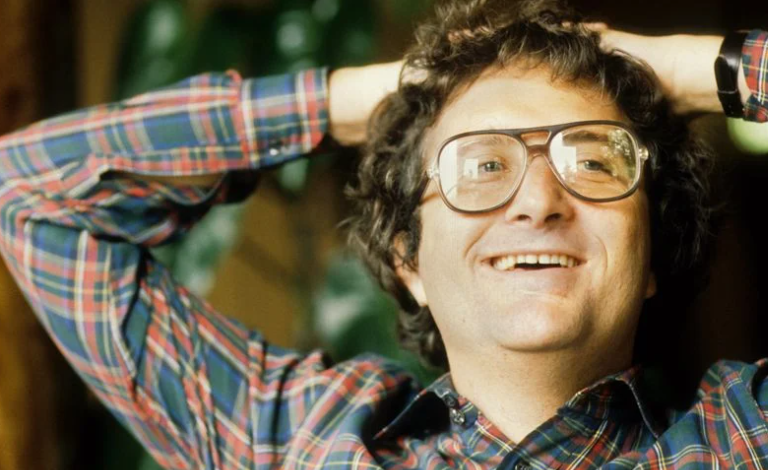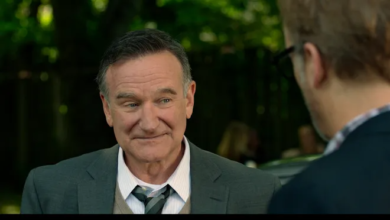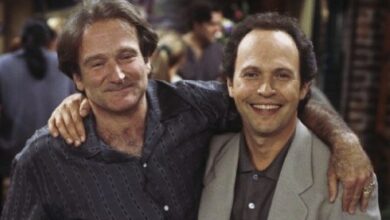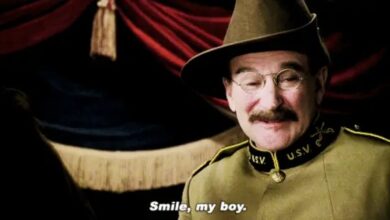Six definitive songs: The ultimate beginner’s guide to Randy Newman

You’ve definitely heard Randy Newman, that much is certain. You might not have heard of him, but you’ve definitely listened to his music. Unless, of course, you’re amongst the 0.1% of the English-speaking world that hasn’t watched Toy Story, in which case you most certainly haven’t heard him, but to everyone else: you have heard him, and you’ve been a fool not to have heard more.
For some reason, it might surprise people to learn that the man behind ‘You’ve Got a Friend in Me’ is one of the greatest living songwriters. It is hard to know exactly why that revelation is so surprising or even just openly objectionable to the uninitiated masses. Most people are happy to accept that it is a wonderful song liked by both kids and adults; that it is charming and disarming, with lyrics that are both playful and poignant, and they are happy to accept that the man behind the melody surely must be a proficient composer, but for some inexplicable reason, despite all of those wonderful things that they are happy to accept, the idea of being reverential about it is ridiculous. To place a writer of pithy Pixar melodies amidst the giant paragons of the craft is seemingly beyond comprehension for some.
It is self-evident that Randy Newman is a man of considerable talents; any layman would be happy to say that off the back of one listen, but to laud him in the same legions as a Leonard Cohen or John Lennon seems a step too far. Everyone is willing to say that Dr Suess is a good artist…but he’s no Picasso.
Randy Newman is in some way’s the Dr Suess of song, the lost third Coen Brother who went into music, the Robin Williams of ragtime. The only thing that separates Newman from the more comfortably acceptable greats is that he never takes himself too seriously. That rare attribute of his is definitely not to be confused with not taking his work seriously, however, as Randy can spend months on just one song, but he doesn’t particularly mind whether the outcomes are played in palaces and palladiums or playgroups and Pixar screenings.
Brian Eno once said that although only 30,000 people bought the Velvet Underground’s debut in its first five years of release, “everyone who bought a copy started a band.” In a career that started in earnest in 1968, Newman may have struggled to garner more than a record-buying audience of 200,000 worldwide, but of those 200,000, many will be fellow songwriters in their own right like mega-fan Bob Dylan or the surfeit of neophyte Newman students who crawled out from under his keyboard. In both examples, the followers were inspired by the fact that something new had been awoken in them, something unique yet relatable.
They’re a great many songwriters who have been dubbed as unique, but Randy Newman is one of the few where that tag stands up under scrutiny without coming from the kooky world of Outsider Music. He is unique as a songwriter because his work is almost more akin to short stories set to music. Sure, that’s not unique in of itself, there’s a slew of songwriters who have written exclusively in that vein, you could even argue that a fair chunk of the songs in charting history have had some detectable narrative. However, Newman is unique because his song stories are almost post-modernist. Where Johnny Cash’s A Boy Named Sue might tell a brilliant tale from A to B, Randy Newman’s unreliable narrators tell a tale from E to Z via C; he uses juxtapositions of melody and lyrics in the same way that his literary equivalents might mix word choice and situation, and thanks to his family background in orchestral composing, he does it all to such eminently listenable tunes.
To get things going, here’s six of them to start you off.
Randy Newman’s six definitive songs:
‘Dixie Flyer’ – The Randy Newman Songbook
A good place to start is The Randy Newman Songbook. The record features a collection of his greatest songs, all stripped back and consisting of simply Randy, his trusty piano, and his froggy vocals. The barebones treatment of the songs allows for the words to shine through.
‘Dixie Flyer’ is an autobiographical song of childhood memories complete with all the little inaccuracies that fading recollections play upon us in our later years. Part ode to his mother, part ode to the past, it is one of his more straightforward tunes, but it’s chocked full of charm and narrative detailing all the same.

‘Short People’ – Little Criminals
Randy’s biggest hit was one he’d rather have traded in. ‘Short People’ is a vicious, perfectly poppy, tirade against damn stinking short people sung from the perspective of “a maniac”. The only issue is that upon its release, many people thought it was sung from the perspective of Randy Newman, who for some reason had become the first songwriter or perhaps simply human, to develop a prejudice against his shorter fellow man. He was labelled as some sort of heightist bigot, rallying a revolutionary cabal against vertically challenged citizens, and as such received death threats presumably from less than burly six-footers.
For a time, he would bravely play his shows hiding as much of himself as he could behind the microphone, fearing a little bullet from a little gun, whilst touting rhetoric that the song actually highlights the absurdities of prejudice. In reality, the piece is just a very funny track about a crazy person, and it bounded along on enough of a jolly bouncing melody to break through into the mainstream for once.

‘The Great Debate’ – Dark Matter
Perhaps the most Newman-Esque Newman song there is. It is here that the aforementioned ‘unique’ quality really shines through like a train at the end of the tunnel. ‘The Great Debate’ is a track genuinely like no other, such an accolade has no doubt been bestowed on a thousand song but this time it is irrefutable.
For the song Newman gathers up a conference that places God under the microscope; on the one side you have astrophysicists, biologists, a life coach and a lumberjack, and in the red corner you have the true believers, the Baptists and the bible belters from the Mississippi Delta; and the compere in the middle is the strawman himself, the trickster behind it all Mr Randy Newman; all vying to prove their side right on a range of topics from evolution to global warming, the queasy good-points of science often losing out to an emotive chorus of “I’ll Take Jesus!”. Throughout the song, the melody is constantly evolving from swing to gospel, brass band and back again, each according to the point being made, ultimately residing in a modest and tuneful melody that abides a conclusion that renounces indoctrination in all its guises, like some good-humoured call for radicalised moderation.
If post-modernism is the reconciliation of science and art, then this is the most post-modern song ever written. It is a comedy sketch for the ears, composed by a master akin to Stravinsky.

‘The Girls in My Life (Pt. 1)’ – Born Again
The literary trait of an unreliable narrator is one often imposed by Newman. This is a braggadocios tale of sexual conquests over females, including “real nice conversations” and being swindled out of his car. The whole song is an in-joke down to the title itself (there never was a Pt. 2).
Newman pairs a syncopated melody with the lyrical skit, in a style of songwriting under-utilised in narrative pop music whereby the lyrics find a suitable match.

‘I Think It’s Going to Rain Today’ – Randy Newman
The literary element of Newman’s songwriter style is not just down to post-modernist techniques or short stories narratives, but also the poetical depth of his lyrics. Like many of his songs you may well already know them by another artist, Nina Simone turned in a stunning rendition of this one, but it’s the beauty of the lyrics that pervades over both versions:
“Broken windows and empty hallways / A pale dead moon in a sky streaked with grey / Human kindness is overflowing / And I think it’s going to rain today.”

‘Let It Shine’ – Sail Away
The often-curmudgeonly songsmith put his more satirical stylings to one side for the 1972 track ‘Let It Shine’ taken from his Sail Away album.
Randy also starts his most sanguine song with a touch of realist lamentation. It is this honest acknowledgement, however, that makes the hope he offers thereafter sing out all the louder. Randy encourages you to embrace new starts with hopeful air of optimism, and he does it so joyfully that it is impossible not to nod along to the Dean of Satire’s more sincere side.






